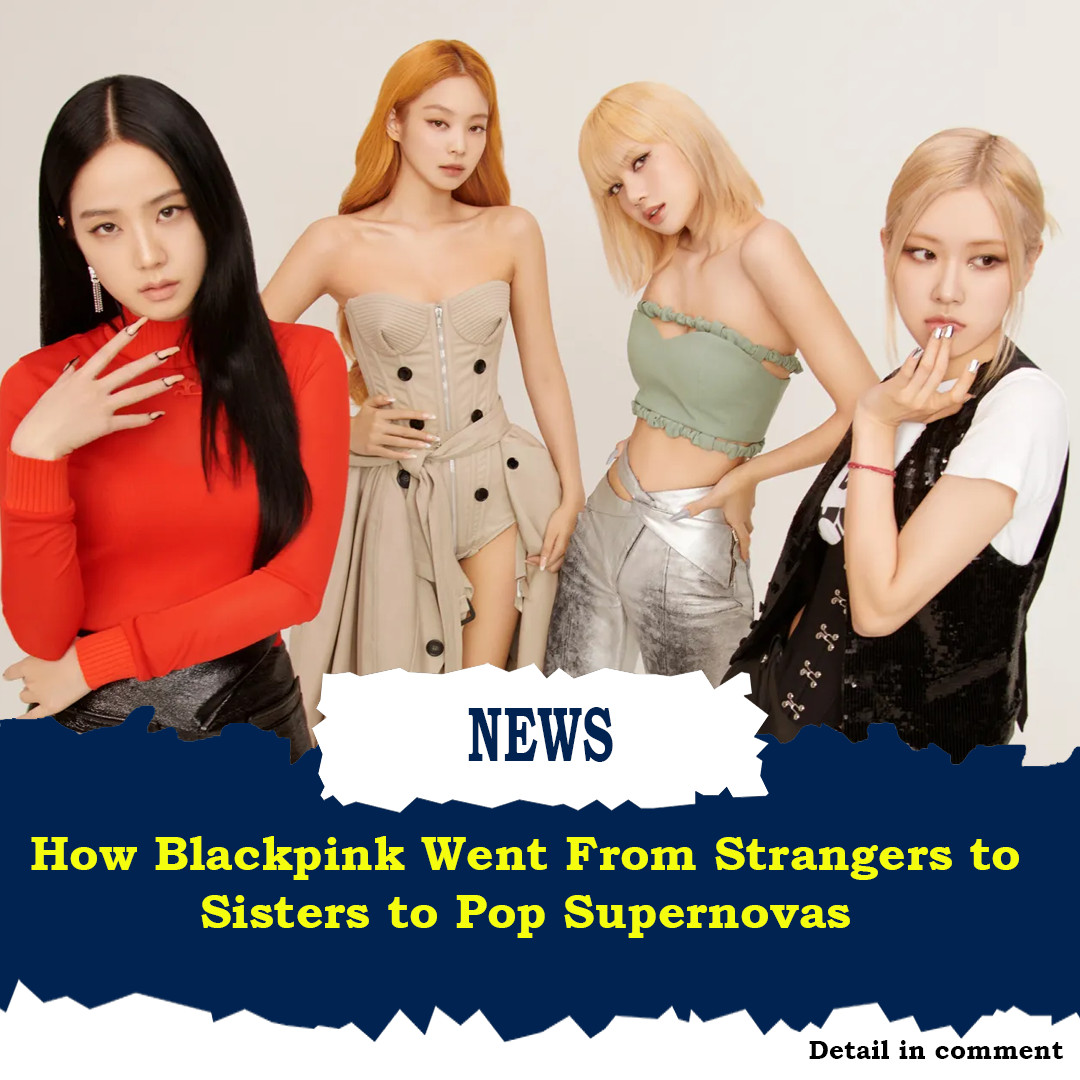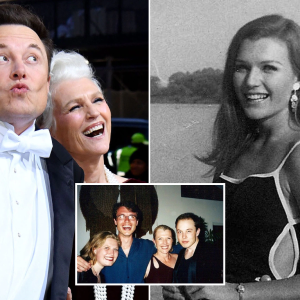
I n an otherwise ordinary Seoul neighborhood, the headquarters of YG Entertainment rise like a giant spaceship above the Han River. YG is one of South Korea’s largest entertainment agencies, producing international K-pop stars, as well as, more recently, actors and models. Opened in 2020, its new complex extends nine stories aboveground and five below. The upper floors are brightly lit and open: meeting rooms with huge windows, an employee cafeteria, even a pho restaurant. Hundreds of YG employees walk busily about. There are screens everywhere, showcasing YG’s huge roster.
The underground floors feel more like a secret den: This is where artists practice in dance studios, record music, and trainees mingle with the stars. And it’s where Blackpink, the world’s most popular girl group, are recording songs for their next album, their first since the early days of the pandemic. Once the album (due sometime later this year) is complete, the flurry of activity will start again, giving the YG employees something new to buzz about and sending the lives of the group’s four members — Jennie, Jisoo, Lisa, and Rosé — into overdrive.
Jennie, who like her bandmates on this April afternoon is dressed down and wearing very little makeup, takes a deep breath before describing what’s ahead. “These days . . . I think every day, ‘OK, how do I prepare myself for my next busy two years?’ ” she says, alternating between Korean and English. After the interview, she’ll hop on a flight to attend Coachella and stop by the L.A. flagship store for the eyewear brand Gentle Monster. She’s an ambassador for the brand, as well as Chanel. The other three members have similar gigs, for the likes of Celine (Lisa), Saint Laurent (Rosé), Dior (Jisoo), and more. Just earlier this year, all four were gallivanting around Paris, with front-row seats at fashion week.
Blackpink are one of the most popular artists to ever come out of South Korea. They’re the most-followed music act on YouTube; on the streets of Seoul, you see them everywhere, from tiny screens in elevators to billboards on skyscrapers. Even the South Korean president has credited the group, among other cultural exports, for “giving hope and happiness to many around the world.” In the U.S., Blackpink have filled arenas and collaborated with stars like Lady Gaga and Cardi B. “From the management and business side, we did have our view and vision to the States and outside of Asia,” says Daniel Hong, the CEO of YG’s U.S. branch. “Who doesn’t want to perform in the States?”
Editor’s picks
Their last LP, called simply The Album, sold around 1.2 million copies in less than a month after its 2020 release, making Blackpink the first million-selling K-pop girl group. In the first quarter of 2021, YG reported an 84 percent jump in revenue over the previous year, largely thanks to Blackpink. Their massive success is part of the Korean Wave, which refers loosely to the global popularity of South Korea’s cultural industry.

“I feel proud of them, like I am being loved,” says Jeong Yujung, a 23-year-old from Busan, South Korea. Jeong is a Blink, one of the millions of Blackpink fans around the world. “When I see them being photographed or performing with these global stars, I feel proud. Of course, the disadvantage is we don’t see them as often in Korea.”
Blackpink’s music projects an explosive, larger-than-life force that’s both invigorating and addictive. They make serious bangers, mixing powerful hip-hop beats with house, EDM, and more. Their videos are filled with bursts of color and inventive dancing, embodying YG’s characteristic dedication to “swag” — a term emblazoned in large letters in one of the company’s bathrooms — and fiercely independent womanhood. “Rather than emphasizing how cute or feminine they are,” Yujung notes, “Blackpink’s confidence seems to stem from a certainty about themselves as individuals. Like, ‘If you don’t like me, you’ll regret it! I’m lovable and cool, you just don’t know it.’ ”
Related: Buy the Collector’s Edition Box Set featuring Blackpink here
In person, Blackpink are more down-to-earth. They’re prone to laughter, constantly talking over one another. “My mom and dad are proud of me, but I don’t feel like a world star,” says Jisoo in Korean, chatting in a conference room and wearing a beige mask she occasionally pulls down to slurp on iced coffee. “I’m the same person that started training in high school. My social standing may have changed, but to me, I’m just . . . too me.”
“More than anyone, we want to be ordinary girls,” says Jennie. “Sure, there are times when we talk about what kind of influence we could have. But what we actually love is talking about our cats, dogs, good food, and pretty places.”
Blackpink come from diverse backgrounds. Lisa (real name: Lalisa Manobal), 25, is from Thailand, a dancer and rapper who spits fierce rhymes in multiple languages. Rosé (Roseanne Chaeyoung Park), also 25, was born in New Zealand and grew up in Australia. She’s the guitar-playing, high-note-hitting main vocalist with the “golden voice,” as fans love to point out. Twenty-six-year-old Jennie Kim, the group’s main rapper, grew up in Seoul and New Zealand, before joining YG in 2010. She’s been living in Seoul with her mother for the past year. There’s no leader in Blackpink, but sometimes Jennie feels like one, calm and collected, often answering the more difficult questions on behalf of the group. And 27-year-old Jisoo Kim grew up in Gunpo, about 20 miles south of YG headquarters; she’s the lead vocalist and an expert harmonizer, both quick-witted and philosophical in interviews.
These days, Blackpink are spending as much of this comparatively quiet time as possible with family and friends. “I feel like I’m recharging myself,” says Jisoo. “My life these days is not too busy, because we’re not actively performing yet. I want to come back with music quickly. I live alone, but my parents are in the same apartment building, so we share meals together.”
Lisa recently returned to Bangkok for the first time in three years, to celebrate her birthday. “My mom and dad are getting old,” she says wistfully, speaking in both English and Korean. “Whenever I have time, I want to return to Thailand. I don’t want to waste my time. I want to see them as often as I can.”
Rosé, who had Covid four weeks ago, apologizes for her dry cough while munching fried rice at that pho restaurant. As a child in Melbourne, she would play piano and guitar and sing until so late that her parents and sister Alice (who all live in Seoul now) had to take turns telling her to stop. She recently picked up her guitar for the first time in ages. In both Korean and English, she talks about recording her voice on an iPad, exploring and playing and experimenting. “I hadn’t been doing that for the past two or three months,” she says. “Caught up in life. I even told my mom, ‘I want to be by myself for the next few days.’ So she didn’t come over.”
Despite their massive success, Blackpink’s path wasn’t easy. And while cats, dogs, good food, and pretty places are indeed topics of discussion, they are also figuring out larger questions about their music, their individual voices, and who they are.
Outside YG’s bustling HQ, amid mom-and-pop stores, “We wash your cars by hand” signs, and an unmemorable apartment building called “Korea Proud,” life is quieter. Cherry blossoms fall like snow over the alleyways of the Hapjeong-dong neighborhood. This area was Blackpink’s adolescence. They spent their teenage years as trainees here: living away from their families, singing, rapping, and practicing dance routines for more than 12 hours a day. They were hell-bent on getting to release music and perform in public. “Debut, debut, debut,” Lisa says. “That was the only thing on our minds.”

“We were on survival mode,” says Jennie. “Every month, our friends were forced to leave, go home. Getting stressed? Having it rough? Those feelings were a luxury. What mattered was debuting.”
YG Entertainment, founded in 1996, has produced international K-pop hits like BigBang and 2NE1, both precursors to Blackpink. All four members of Blackpink passed auditions to become trainees; all came to YG at different times. Jennie was around the longest, spending six years as a trainee before the group debuted with the singles “Whistle” and “Boombayah” in 2016. Jisoo trained for five years, as did Lisa, who left Bangkok to become a trainee in 2011. Rosé joined in 2012, ranking first among 700 contestants in a YG audition in Sydney. At 15, she left her family and life in Melbourne behind and walked into YG’s headquarters carrying the same guitar she still plays today. “That guitar is over 10 years old now,” she notes. “It’s older than my dog Hank.”
That was the day all four girls met, jamming in the YG dormitory kitchen in their pajamas until dawn. Many other trainees would cycle through the project in the years-long process of forming Blackpink, but somehow, fortuitously, the final four members were assigned to the same dorm in those early days. Rosé had just said a teary goodbye to her parents when she met her bandmates. “I think Jennie said, ‘Chaeyoung, play something for us!’ ” remembers Rosé, whose friends call her both Chaeyoung and Rosie. “So we sat around the kitchen table with my guitar. Jisoo was great at harmonizing.”
“We started out sitting in chairs and then gradually went up onto the table,” Lisa says, laughing, during a group interview. “Everyone was like ‘Wooooo.’ It was so much fun.”
“My seat was facing the kitchen window; I remember the sun rising,” says Jisoo.
“Gosh, we’re lucky our neighbors didn’t complain,” giggles Rosé.
“You know, if you’d gone to bed early that day, you might have felt sadder,” Jennie tells Rosé thoughtfully.
In that three-bedroom apartment with the white walls faded to ivory, the four girls shared two rooms, while their manager slept in the other one. They played Rock, Paper, Scissors to decide who would use the single bathroom first in the morning.

“Going grocery shopping was so fun,” remembers Rosé. “We’d cook together after a long day of training. Nothing spectacular, all frozen stuff. But I still miss the taste of that food.”
“I made scrambled eggs with milk,” says Jennie.
“And we ate that with strawberry jam,” adds Rosé. “It was delicious.”
They needed that kind of camaraderie, because the life of a trainee can be demanding. K-pop’s trainee systems, inspired by Motown in the U.S. and Johnny’s Entertainment in Japan, come under frequent scrutiny. There’s no guarantee of ever succeeding, which means trainees can remain in limbo for years. The curriculum differs from agency to agency; at YG, the future Blackpink members underwent a rigorous monthly testing system, where trainees performed solo and in teams for judges, developing everything from their own choreography to styling.
“When was this going to end? Like, when? Do we have to get tested every single month?” says Lisa, who initially didn’t speak Korean but is now fluent. “I’d call my mom [in Thailand], wanting to quit, and she’d tell me to hang on just another year, just hang on.”
“If I was going through a hard time, I’d go to the bathroom, sob my heart out, then on to the next thing,” says Rosé. “I was on autopilot or something. If you told me to do that again, I could never.”
In addition to long working hours, there are different restrictions on trainees’ lifestyles. Blackpink were forbidden from dating, driving, and drinking, though it’s not clear how strictly they followed the rules. Rosé once said on Radio Star, a Korean TV show, “These bans were negotiable with the company. They just didn’t want us to do them behind their backs.”
The members say they received classes devoted to mental health, as well as therapy, but ultimately, they weren’t helpful. “We had the same problems, so it was better to talk to each other,” says Jisoo.
“We just endured,” adds Jennie.
The difficult parts of Blackpink’s journey — and the immensity of their achievements — fade into the background when the members are all together. A few days before we meet at YG, they’re all sitting in an unadorned waiting room between photo shoots. (In case you were wondering, the members prefer to have their left side photographed, except Jisoo, who prefers her right.) When Rosé points out the lipstick on Lisa’s teeth, the latter grins back with an extra-toothy smile. Jisoo squeals when a mosquito flies her way, while Jennie makes fake nails with empty pistachio shells. They shriek with laughter, reminiscing about the trainee days as the room fills with the noise and warmth of a family kitchen.
Back in their trainee days, the members would sometimes devise schemes to skip practice. One episode revolved around Potato Teacher, a longtime YG choreographer who taught Blackpink to dance. (Potato, whose real name is Kim Hee Jung, got her nickname in elementary school, at a time when, for some reason, it was trendy to refer to your classmates by the names of fruits and vegetables.) “She was considered a legend, so everybody was scared of her,” Rosé says.
“But we were dancing literally every single day. Sometimes we really, really wanted to take a break,” begins Jisoo. “So one day . . .”
“No, you wouldn’t,” Lisa shrieks, laughing.
“. . . we took out one of the cables.”
“Arrrrgh!” Lisa shouts, a feeble, last attempt to protect their secret.
“We took out one of the many cables connected to the speaker, and said, ‘Huh? Why isn’t the music coming out?’ ” Jisoo continues, undeterred. “Our class was an hour long. The engineer eventually came and fixed it, within 30 minutes.”
“But even those 30 minutes were so precious, so precious,” says Jennie.
“We were such a problematic group,” Rosé says, cracking up.
“I don’t think Potato Teacher knows about this story, to this day,” says Jisoo.

Blackpink are involved in every step of the creative process, from conceptual brainstorming to final styling. They’re co-writers on smashes like “Lovesick Girls” and many others, as well as on their solo singles, some of which are massive hits.
“We don’t just receive a completed song,” says Jisoo. “We are involved from the beginning, building the blocks, adding this or that feeling, exchanging feedback — and this process of creating makes me feel proud of our music. If we just received pre-made songs, it would feel mechanical. I feel more love for the process, because we say, ‘How about adding this in the lyrics? How about adding this move in the choreography?’ ”
At the heart of their music is Teddy Park, Blackpink’s main producer. “Blackpink in your area!” the iconic phrase that pops up in many of their singles, was Teddy’s doing.
“Oppa directs all of Blackpink,” says Lisa, using the honorific for an older man. “He knows us incredibly well,” she says. “He pushes us hard. ‘Again, again, again,’ he’d say.”
“He’ll just randomly call me one day, ‘Yo, Jennie, we gotta step up,’ ” says Jennie. “He’s like an alarm, reminding us to keep moving musically. All he has to do is call, ‘Hey, what’s up?’ and I’ll be like, ‘Oh, my God,’ tensing up. But it’s a good tension that Blackpink needs.”
A Korean American from Los Angeles, Teddy gained mainstream fame in Korea in the late 1990s, first as a rapper in the YG-produced hip-hop boy band 1TYM. The group is often seen as a precursor to BigBang, combining rap, dance, and the good looks typical of K-pop idol groups. “Teddy is hip-hop down to his bones,” says Jennie. “And we inherited that.”
It’s hard to talk about K-pop without mentioning its beating heart of hip-hop. MTV, launched in 1981, was broadcast in South Korea through AFKN, the U.S. military’s broadcasting service in South Korea. American GIs and Koreans danced to everything from New Jack Swing to Michael Jackson in nightclubs near Seoul’s U.S. military base. Seo Taiji and Boys, a critical precursor to today’s K-pop idols, began their career through dance battles at Moon Night in the Itaewon neighborhood.
“The history of hip-hop in Korea did not begin with rappers and DJs; it did with dancers performing to New Jack Swing,” write blogger T.K. Park and music critic Youngdae Kim in Vulture. “The fact that the cradle of hip-hop in Korea was the dance club has deep implications that can be seen to this day in mainstream K-pop . . . the identity of Korean hip-hop as dance music flowed into the mainstream K-pop idol groups, particularly through the producer YG.”

Yang Hyun-suk, one of the boys (in Seo Taiji and Boys) and a legendary competitor at Moon Night, would later found YG Entertainment, around the time Korean pop started looking beyond its borders. The agency created hip-hop groups like Jinusean and 1TYM, and found success through BigBang in the mid-2000s. (Yang resigned in 2019 amid a slew of allegations involving some of the label’s biggest stars, including sex trafficking and covering up a drug scandal.)
Teddy rarely gives interviews. In 2013, he told Korean news site OSEN that he goes to bed at 9 a.m. and wakes up at 3 p.m., making music during most of his waking hours. Though Teddy has been behind many of the biggest chart-topping hits in Korean pop, he says he doesn’t like chart-topping songs, because “I want to eat food that was made by hand in a worn-out store, rather than a franchise dish that sells like it has wings.”
Korean hip-hop is more than K-pop idols — think legends like Deux, the Movement Crew, Verbal Jint — but YG’s brand, with Teddy at the center, is undeniably one of the most globally popular. Blackpink’s potent, inventive sound combines the YG spirit of swag and self-confidence with moments of vulnerability and inventive beats. “Love to Hate Me” recalls 2000s R&B; “How You Like That” is permeated by trap rhythms and catchy, repeating one-liners (common in Blackpink songs). “Crazy Over You” packs in retro hip-hop beats, Balkan touches, and tricky lines — “Simple is so, so, I need that oh no/Don’t you know I’m loco” — expertly rapped by Lisa.
“Hip-hop is in my blood,” says Lisa, who went solo for the first time with a single written by Teddy. “Lalisa” is infused with a maximalist mix of rap, EDM, brass riffs, and even traditional Thai instruments. Another solo single, “Money,” dethroned Drake to take the top spot on Billboard’s Rap Digital Songs Sales chart.
“I don’t think hip-hop is just about rapping. Look at Rihanna, she could make anything hip-hop. Hip-hop means something different to everyone,” says Jennie, who loves Brockhampton (and just saw them at Coachella).
“To me, it’s the spirit of cool — vibes, swag, whatever words you can use. I think Blackpink’s hip-hop is something the world hasn’t seen before,” she continues. “We, four girls in their twenties from different backgrounds, are using -Korean and English to weave pop music with a hip-hop base. Maybe if the really cool rappers in America, who do ‘real hip-hop,’ look at us, it can seem a little like kids doing things. Our hip-hop isn’t the rebellious kind, but we are doing something very cool. What hip-hop is this? I don’t know! It’s just cool!”
Jisoo sits in the YG conference room, high above the mighty Han. Known as the funny one within the group, she’s quiet and serious today, thinking about big questions and wearing a cap that says “As time goes by it will be better.” Jisoo’s the only member who hasn’t released solo music, though there’s buzz she might sometime this year. “I’m not sure how much I want to go solo yet,” she says. “The music I listen to, the music I can do, and the music I want to do — what should I choose? I love songs with lots of instruments. I love different bands and rock music. What do people want from me? There’s a chaos of conflicting questions.”
There’s no indication Blackpink is anything but full speed ahead, but behind the veneer of pop perfection, the artists are still figuring out their paths as individual musicians. Each has solo activities: Jisoo acts, and the other three have released singles, including some massive hits — although the sounds don’t stray too far from Blackpink’s sonic palette, with Teddy involved in most of the songs.
“Is hip-hop the only thing I’m good at?” wonders Lisa. “What if it turns out I’m also good at traditional Thai music?” Her 2021 solo single “Lalisa” incorporated different Thai visuals and sounds, and she points to artists like Rosalía as an exemplar: “Rosalía is so cool. She has her own Spanish culture, that’s inside her person, that influences her music. . . . I’m curious to know how much I can expand what I do. Music-wise, dance-wise, I feel like I still have to learn more.”
“The Jennie you’ve seen so far has been practice,” says Jennie, the first member to go solo, in 2018, with the single “Solo,” on which she mixes mellow vocals with her characteristically swaggering rap (the video has more than 800 million views on YouTube). “I have so many things I like . . . I love vocals, rap, dance. I can contain all of that in a single song. I have that diversity.”

Fun or not, making music is full of pressure, as the foursome recall during a break from the photo shoot. “The most fun is before we start making it,” Jisoo says with a laugh.
“Or when it’s in the past,” says Jennie, giggling.
“When I recorded something for the first time,” Rosé says, “I was so excited. I didn’t know any better, so it was fun. I envy that now. Now, no matter how hard I try, a part of me is never satisfied.”
“That’s an occupational disease,” Lisa tells Rosé. “And I feel exactly the same.”
Jisoo loves creating, loves building a song from scratch with an expert team. But she sometimes struggles with questions of purpose and the pressures of fame. “What do I exactly like?” she asks. “It’s still a mystery. I love to perform, but I don’t always enjoy being part of the spotlight. I think it’s different for the other members: They love to receive the spotlight, feeling energized by the people who come to see us, and then getting a bit depressed when the stage is over and silence arrives. I’m a little different. When I’m onstage, I think about not making mistakes. Performing sometimes feels more like a test than something genuinely fun.”
Lisa talks about a period of fighting with her own voice. “That whole year between ‘As If It’s Your Last’ [2017] and ‘Ddu-du Ddu-du’ [2018] was rough for me,” she says, sitting in a dimly lit recording studio on a basement floor of YG. “I couldn’t sing. When I went to the studio to record, nothing came out. I cried. I felt like I was bringing the team down. Teddy pushed me hard: ‘You can’t? No. Try harder. Go back in there.’ Because of Teddy, I overcame that time.”
Jennie regularly does Pilates, yoga, boxing, and other exercises to stay healthy. “For me, so far, when I’m good in my body, I feel happier and healthier in my mental health. . . . And have good people around you that you can trust,” she adds. “And pets.”
Now, Blackpink are revving up to launch new music — to unleash more bangers, to further cement their place as one of greatest girl groups of all time — with no end in sight. “I mean, won’t Blackpink last at least 10 more years? We’ll be nearly 40 by then,” Lisa says. “Someday we’ll get married and things like that. But then I see the Spice Girls, how they got together for a reunion concert. Can we do that too someday? Will I be able to dance then, like I do now?” Then she laughs in her characteristically hearty way.
“Even if we’re 70 and we have different lives, I’ll still feel like I’m Blackpink,” says Jennie. “As corny as it sounds, I don’t think Blackpink will ever end in my heart. It’s a part of my family. You can’t deny your family.”
Last year, Rosé released her first solo single, “On the Ground.” I ask what the lyric “Everything I need is on the ground” means to her. She pauses. Her shoulder-length blond hair wisps around her face as her eyes narrow into focus. “Just us as people. A year and a half ago, maybe two, I remember us eating. It was the four of us and Teddy. We were just hungry people — we got to the restaurant, very hungry, and the food was really good. This is what makes us feel like people. Just us, eating with the people we love.”





